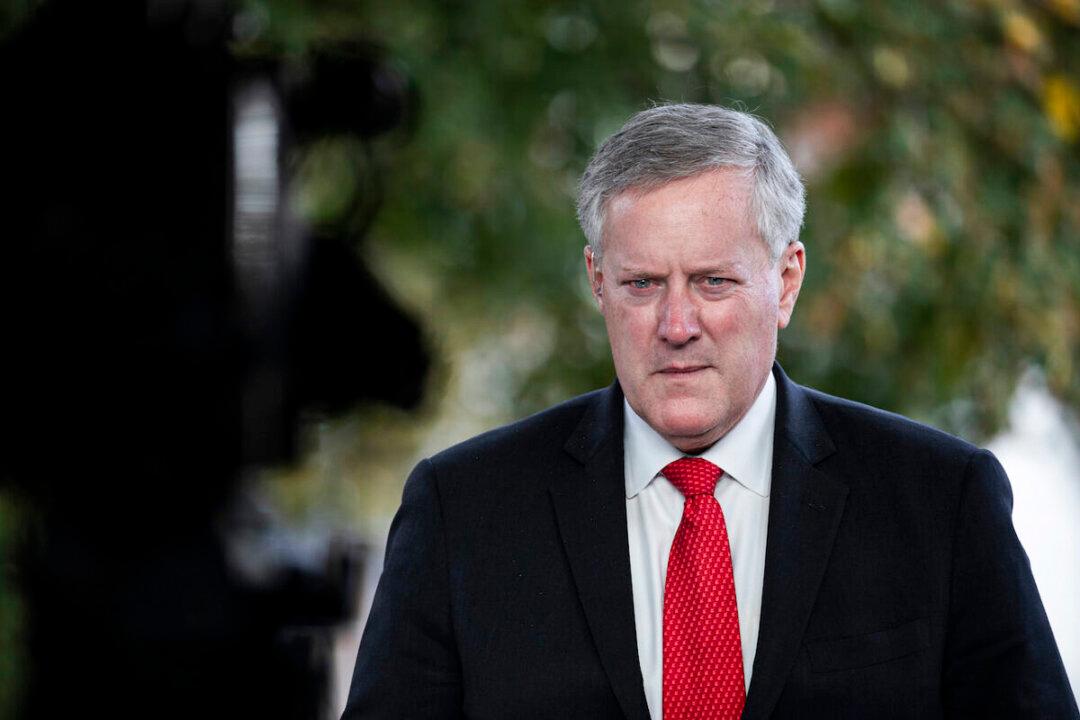A federal judge on Monday dismissed former White House chief of staff Mark Meadows’s legal challenge against a subpoena issued by the House Jan. 6 committee for his testimony.
Meadows tried to assert executive privilege to shield himself from the controversial Democrat-led probe, but the judge concluded that the subpoenas are protected legislative acts. That is, they are protected by the Speech or Debate Clause of the First Amendment.





